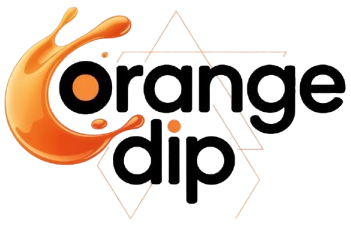Understanding Teenage Substance Use
The adolescent years signify a critical time for discovering one’s identity and exploring oneself. It is a phase commonly marked by a search for autonomy, occasionally resulting in dangerous actions. One of these is the testing of substances like alcohol and drugs. The reasons for this behavior are diverse and intricate, frequently encompassing peer influence, psychological issues, societal norms, and occasionally just a curiosity to try new things. This is why understanding and accessing drug rehab for teenagers is crucial.
Delving into why teens may begin using substances is a significant step toward prevention and rehabilitation. Factors leading to substance use are not always apparent. They can stem from academic pressure, family dynamics, or even an underlying mental health condition. When these aspects are recognized and addressed early, developing strategies to guide teens toward healthier lifestyle choices become more manageable.
The Role of Rehabilitation in Teenage Recovery
Rehabilitation centers offer more than just substance abuse treatment; they provide a foundation for rebuilding a healthy, balanced lifestyle. Such facilities are equipped to address the multifaceted needs of teenagers undergoing recovery. Rehabilitation programs create supportive environments where teens can begin to heal under the supervision of trained professionals. The objective is to stop using substances and equip teenagers with the necessary skills for lasting health and happiness. By following structured daily schedules and receiving individualized therapy like cognitive behavioral therapy or family counseling, teenagers are motivated and guided to create a new direction.
Support Systems: Family and Peers
One must recognize the power of support systems in the recovery process. Family involvement in therapeutic processes often leads to improved outcomes. Families are encouraged to engage in counseling sessions to develop empathy and understanding, which can significantly improve communication and relationships at home. Peers, too, can provide crucial support. Positive peer influence is essential for reinforcing behavioral change, offering a sense of camaraderie as teens navigate their recovery journey together. Being part of an actively supportive community makes teens more likely to remain committed to their recovery goals.
Different Rehabilitation Programs and Their Offerings
The diversity of rehabilitation programs allows for a broad spectrum of care tailored to individual needs. Inpatient programs immerse teens in an environment where they can focus entirely on recovery, providing around-the-clock medical care and therapeutic support. These programs frequently include diverse holistic methods, like art and music therapy, to involve teenagers artistically and assist in emotional release. Meanwhile, outpatient programs offer flexibility, enabling adolescents to continue daily activities such as attending school while maintaining consistent therapeutic engagement.
The Relevance of Mental Health Care
Effective treatment for substance abuse during adolescence is closely connected to mental health care, given the critical emotional and psychological growth that occurs during this period. Effective rehabilitation combines mental health services to address root problems that could influence substance abuse. This method deals with both the addiction symptoms and the underlying causes, providing a holistic treatment approach. Rehabilitation programs that focus on mental health help teenagers reach long-lasting recovery and build up emotional strength.
Utilizing Educational Resources and Community Programs
Education and community involvement are proactive measures that can significantly influence teen substance abuse outcomes. Schools, community centers, and digital platforms provide access to information and resources vital for prevention. Programs designed to educate teens about the realistic dangers of substance use prove effective in fostering informed decision-making. Research in Psychology Today highlights the importance of preventive education and community involvement as strategies to decrease adolescent substance experimentation, reinforcing the benefits of such proactive approaches.
Drawing Inspiration from Success Stories
Success stories are potent narratives that provide hope and guidance to those struggling to recover. These stories emphasize the impact of discipline, the strength derived from supportive networks, and the availability of resources that cater to individual recovery needs. By spotlighting real-world examples of teens triumphing over their challenges, these stories serve as motivating testimonies, encouraging others to engage fully in their rehabilitation efforts. They underscore that recovery is possible and fully attainable with the proper support and dedication.
Policy Implications and Future Directions
Enhancing teen rehabilitation programs demands continuous advocacy and policy reform. Increasing the accessibility of rehabilitation programs and advocating for more comprehensive funding for mental health services are essential steps toward broader reach and efficacy. Public awareness initiatives are also vital in changing how society views teen rehabilitation. Continued research into effective therapies and preventive strategies is necessary to evolve these efforts further, ensuring that they remain impactful and relevant in addressing the ever-changing dynamics of teenage substance use.
Stay in touch to get more updates & news on Orangedip!


